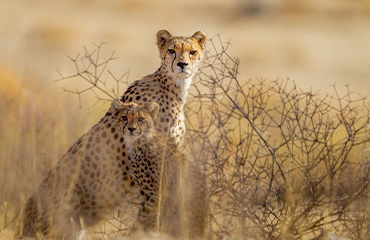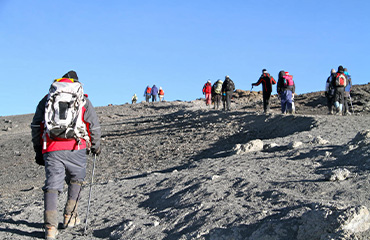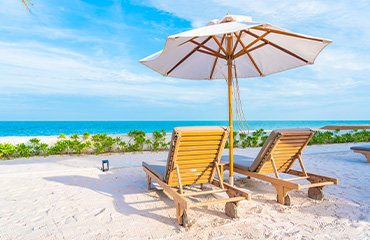Essential FAQs for Your Tanzania Safari Adventure
1. What is the best time of year to visit Tanzania for a safari?
The best time for a safari in Tanzania is during the dry season, from June to October, when wildlife is abundant and easily spotted around water sources. However, the wet season from November to May offers lush landscapes, newborn animals, and excellent birdwatching opportunities.
2. What types of accommodations are available during a Tanzanian safari?
Tanzanian safaris offer a range of accommodations, including luxury lodges, tented camps, mobile camps, and budget-friendly campsites. Each option provides a unique experience, from comfortable amenities to immersive nature settings.
3. How many national parks should I visit during my Tanzanian safari?
The number of national parks to visit depends on your interests, time constraints, and budget. The Serengeti, Ngorongoro Crater, Tarangire, and Lake Manyara are popular choices, offering diverse wildlife, stunning landscapes, and cultural experiences.
4. What wildlife can I expect to see on a Tanzanian safari?
Tanzania boasts a rich variety of wildlife, including the Big Five (lion, elephant, buffalo, leopard, and rhinoceros), as well as cheetahs, giraffes, zebras, wildebeests, hippos, crocodiles, and numerous bird species. Witnessing the Great Wildebeest Migration is a highlight for many safari-goers.
5. Are Tanzanian safaris safe?
Yes, Tanzanian safaris are generally safe when conducted by reputable tour operators and experienced guides. It's essential to follow safety guidelines, such as staying inside vehicles during game drives, respecting wildlife, and adhering to park regulations.
6. Do I need vaccinations or medications before traveling to Tanzania?
Yes, it's advisable to consult with a healthcare professional or travel clinic to determine which vaccinations and medications are recommended for travel to Tanzania. Common vaccinations include yellow fever, typhoid, hepatitis A and B, and malaria prophylaxis.
7. What should I pack for a Tanzanian safari?
When packing for a Tanzanian safari, consider essentials such as lightweight and breathable clothing, a wide-brimmed hat, sunscreen, insect repellent, sturdy walking shoes, binoculars, a camera with extra batteries, and any necessary medications.
8. Can children participate in Tanzanian safaris?
Yes, many safari operators offer family-friendly safari options suitable for children of all ages. It's essential to choose age-appropriate activities and accommodations and consider the interests and safety of children when planning a safari.
9. What is the Great Wildebeest Migration?
The Great Wildebeest Migration is one of the most spectacular wildlife events in the world, involving the annual migration of millions of wildebeests, zebras, and other herbivores across the Serengeti ecosystem in Tanzania and the Maasai Mara in Kenya.
10. How do I book a Tanzanian safari?
You can book a Tanzanian safari through reputable tour operators, travel agencies, or online platforms. It's essential to research and compare safari packages, read reviews, and communicate your preferences and expectations to ensure a memorable safari experience.
11. What is included in a typical Tanzanian safari package?
A typical Tanzanian safari package may include accommodations, meals, game drives with experienced guides, park fees, and transportation between parks. Some packages may also offer additional activities such as cultural visits, walking safaris, and hot air balloon rides.
12. Can I customize my Tanzanian safari itinerary?
Yes, many tour operators offer customizable safari itineraries tailored to your preferences, interests, and budget. Whether you prefer luxury lodges, remote wilderness camps, or off-the-beaten-path destinations, you can work with your tour operator to create the perfect safari experience.
13. What currency is used in Tanzania, and how can I exchange money?
The official currency of Tanzania is the Tanzanian shilling (TZS). You can exchange money at banks, currency exchange bureaus, or authorized hotels and lodges. Credit cards are widely accepted in major cities and tourist areas, but it's advisable to carry cash for smaller purchases and tips.
14. Are there any cultural considerations or etiquette to be aware of in Tanzania?
Yes, it's essential to respect local customs and traditions while visiting Tanzania. Common cultural etiquette includes greeting people with "Jambo" (hello) or "Asante" (thank you), dressing modestly, asking permission before taking photos of people, and refraining from public displays of affection.
15. What happens in case of an emergency during a Tanzanian safari?
In the event of an emergency during a Tanzanian safari, your tour operator or lodge staff will have procedures in place to ensure your safety and well-being. It's essential to communicate any medical conditions or concerns before your safari and follow instructions from your guides in case of emergencies.





